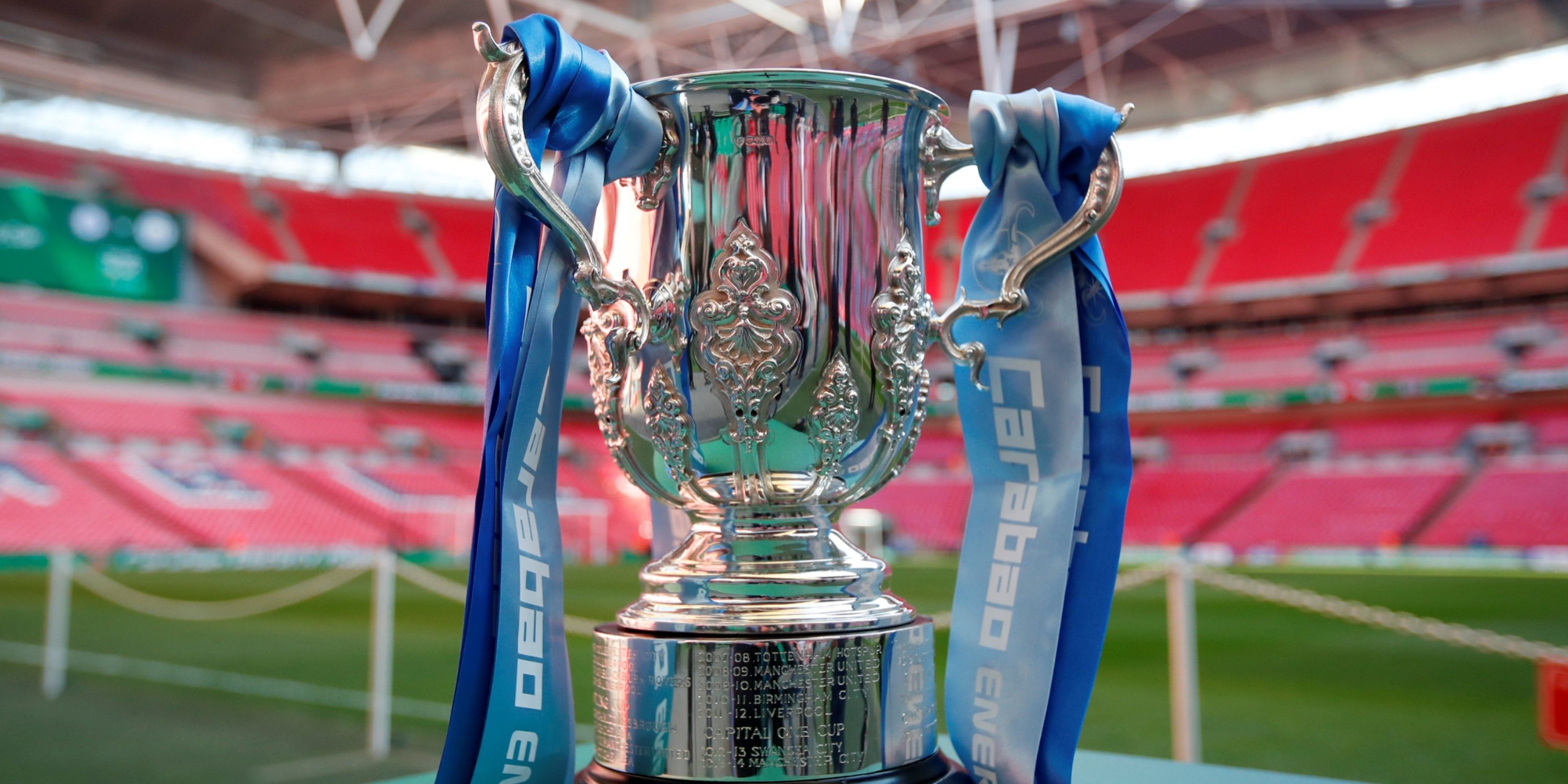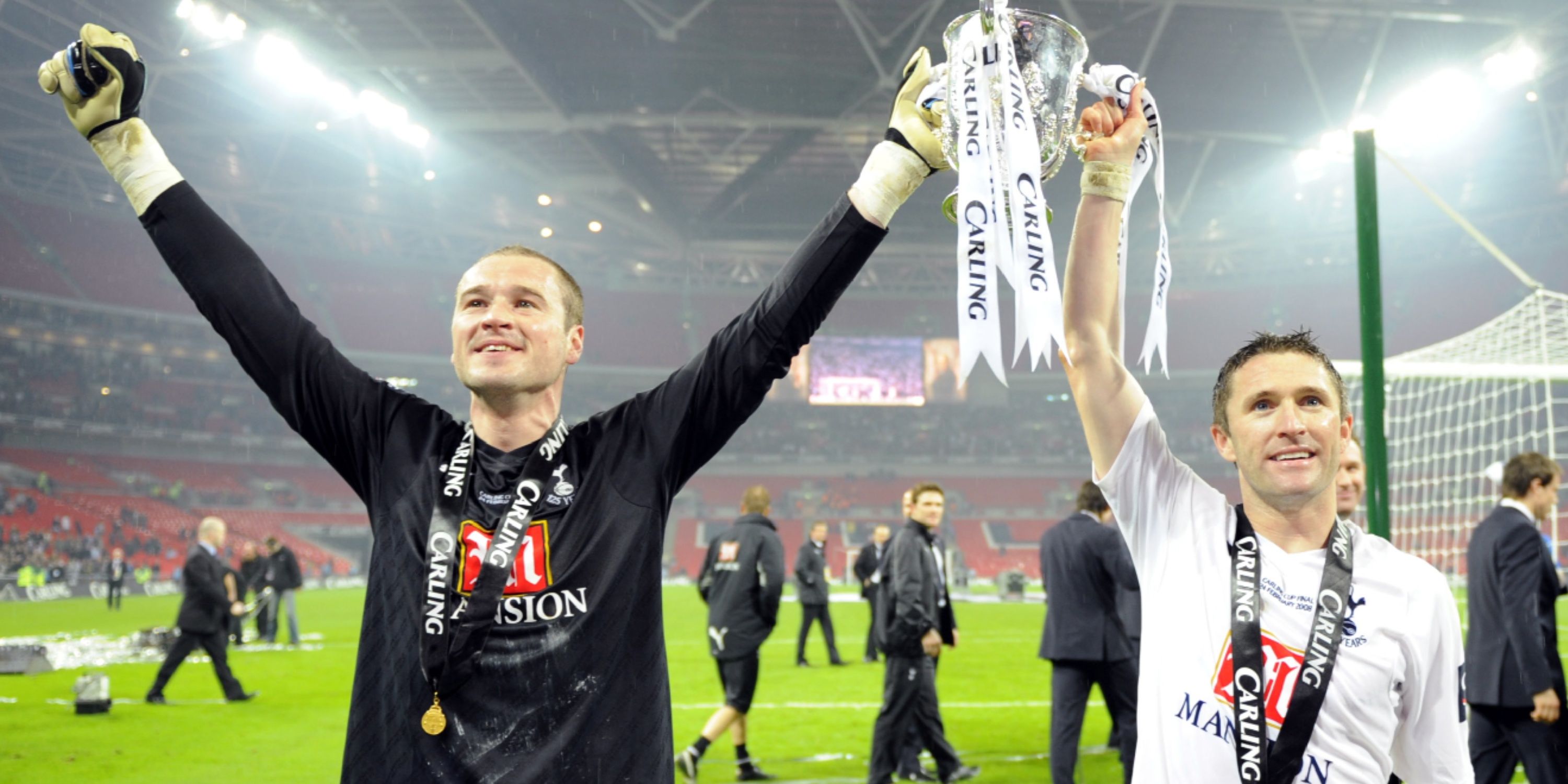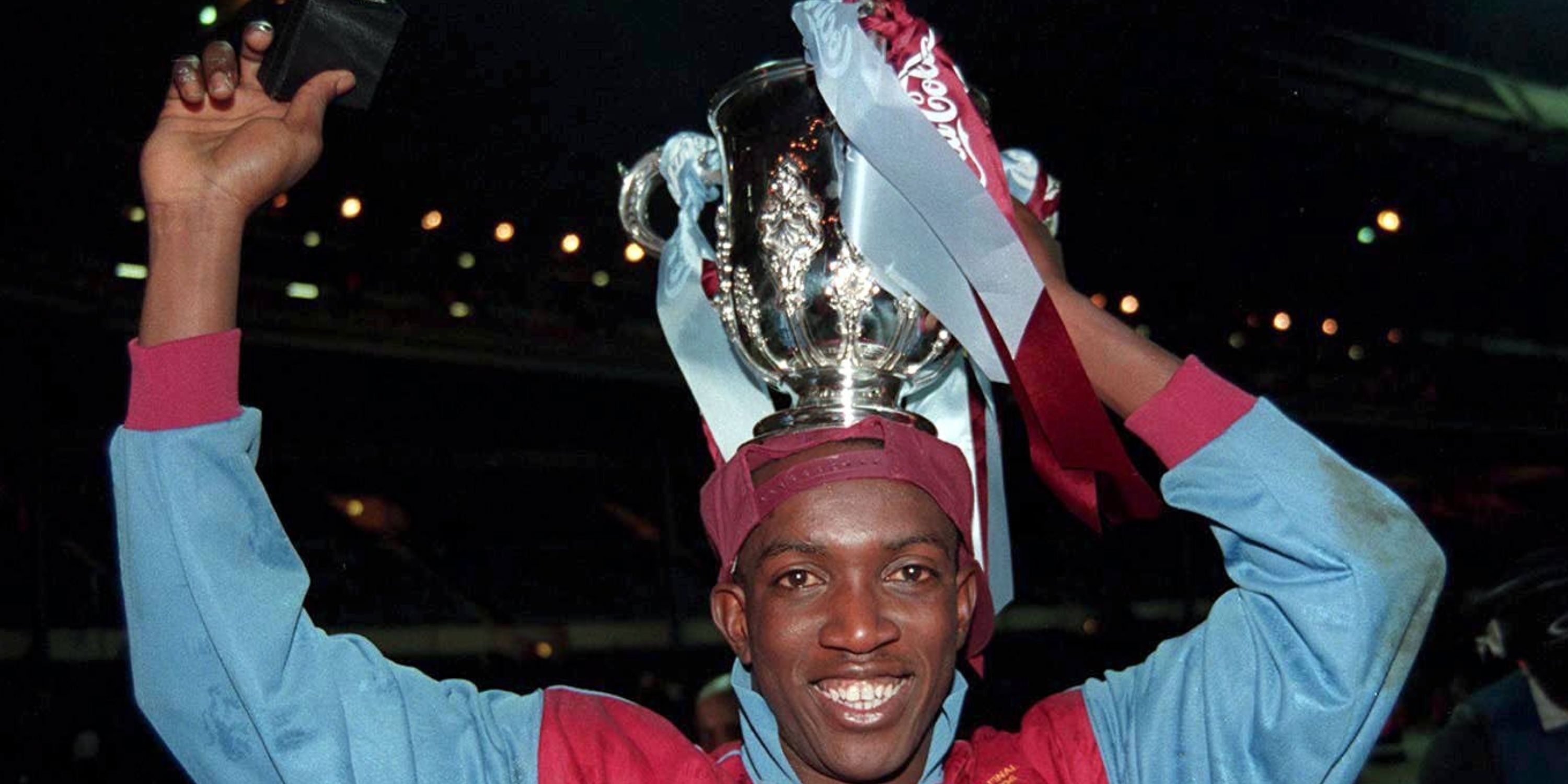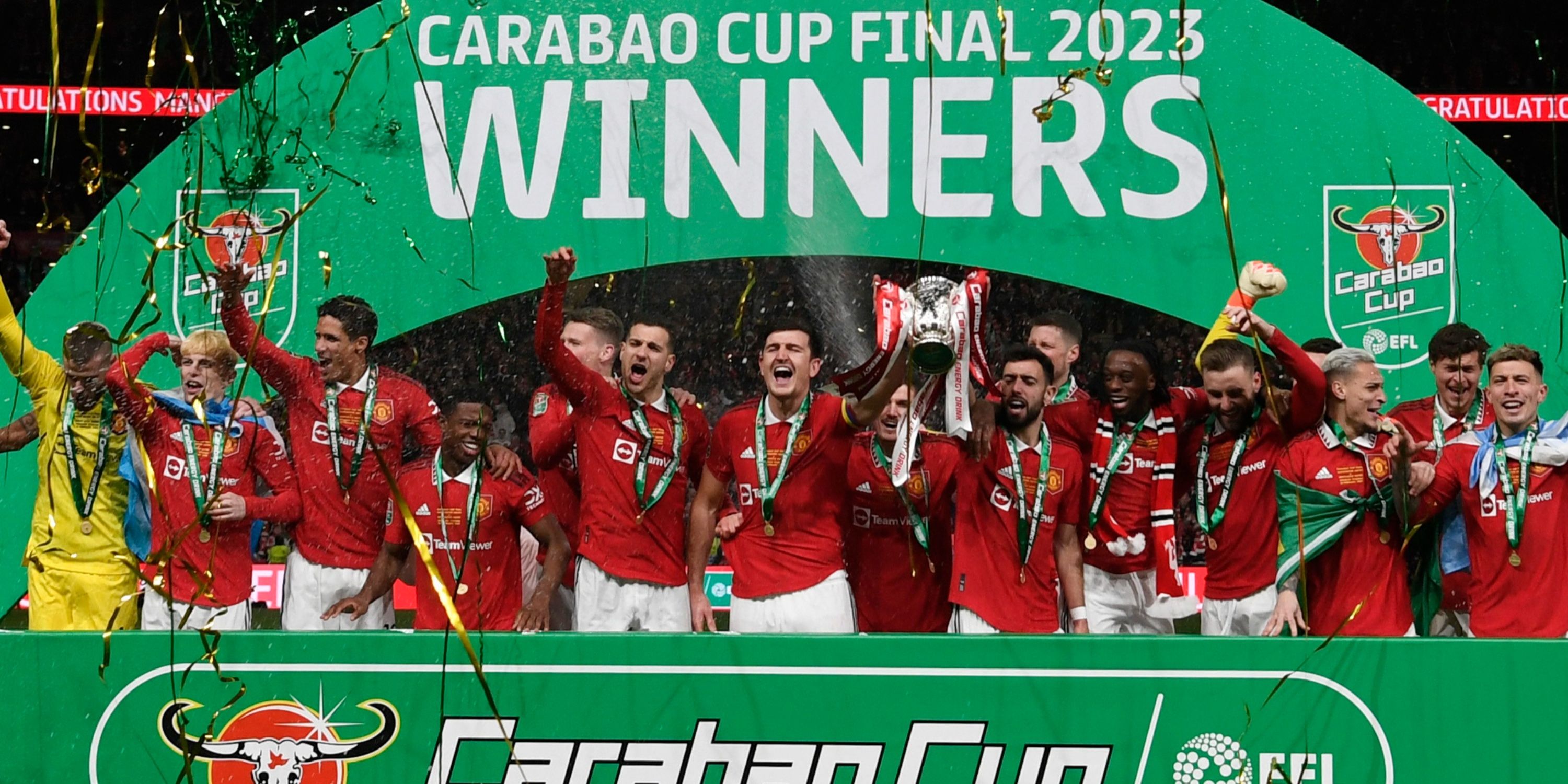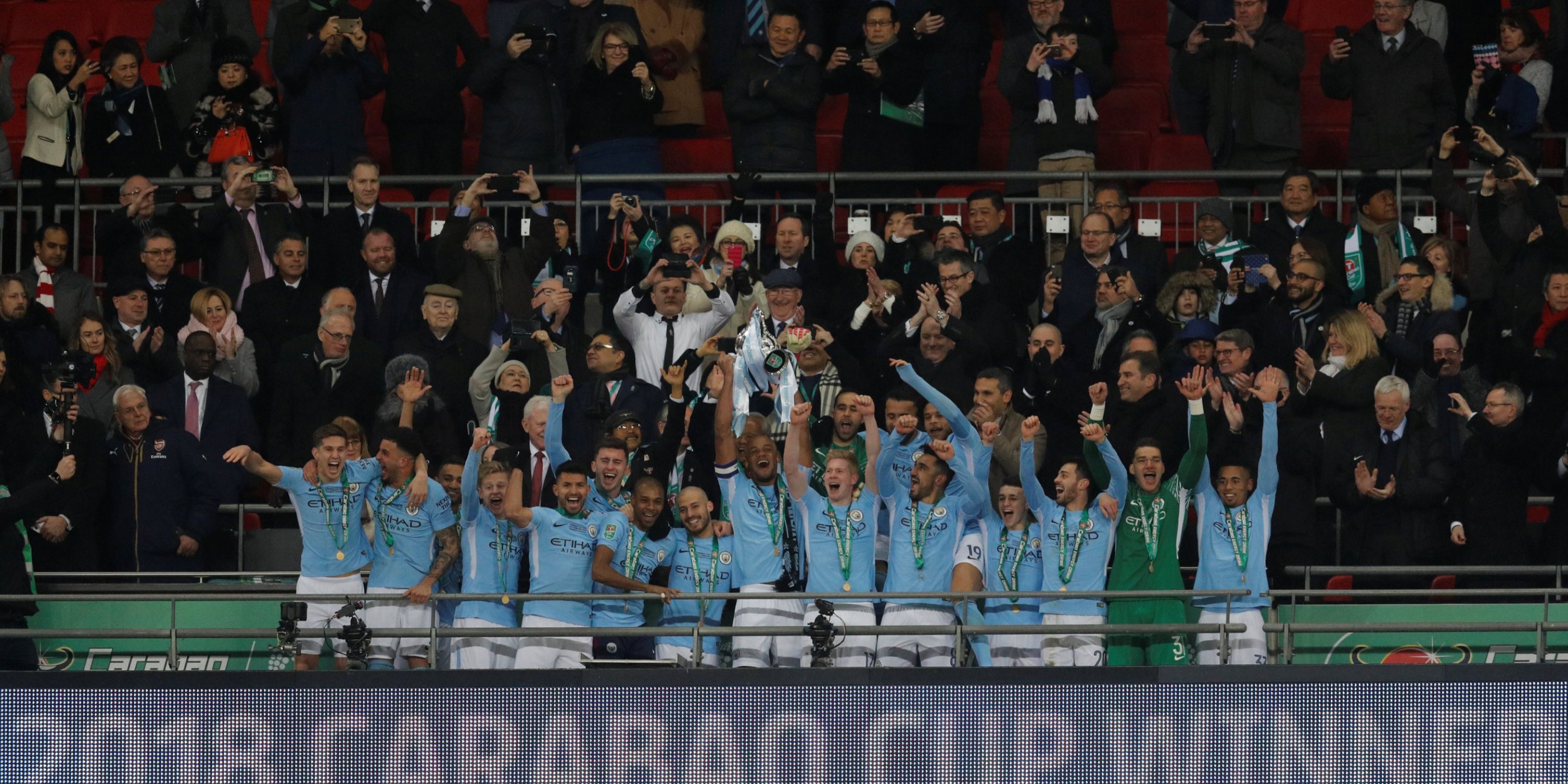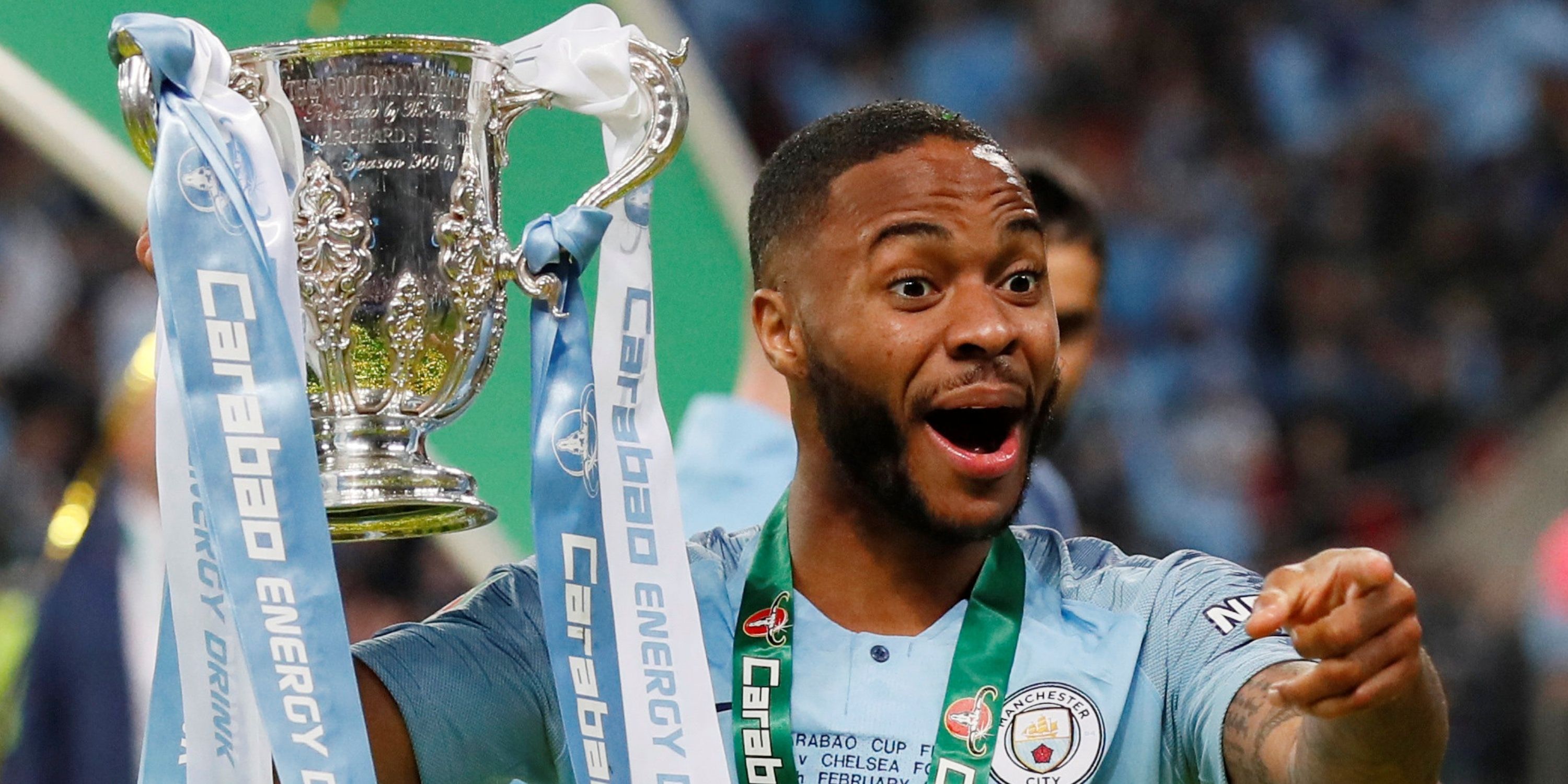Key Takeaways
- The Carabao Cup, formerly known as the League Cup, has had various sponsors over the years.
- This article looks at everything you need to know about the history of the name of the competition, including when it changed to the ‘Carabao Cup’ in the modern day.
- Ian Rush holds the record for the most goals in the Carabao Cup, whilst his club – Liverpool – have won the competition the most times since 1961.
The Carabao Cup is often looked down upon within English football. It is seen as the secondary cup competition in the country, with the FA Cup taking priority. However, it is still full of history, iconic moments and drama, epitomising the state of English football regularly.
In the 2023/2024 season, Liverpool defeated Chelsea in the final at Wembley thanks to a goal from Virgil van Dijk. The format of the competition is simple. Every team that competes in the English Football League (EFL) competes. From the luxury of the Premier League to the struggles in League 2, its variety symbolises the football pyramid in the country.
Only 72 teams enter in the first round, but eventually, the best Premier League teams enter (in the third round) before clubs are whittled down one by one until only two remain for the final at Wembley.
It’s a classic knockout tournament, but the history of the competition is sometimes blurred. Due to this, we have produced an article to explain the history of the tournament and why it has the name it has
Previous Names
Carabao Cup
- 2017 – present
- Sponsor: Carabao
The Carabao Cup was used as the name from 2017 onwards. The current deal ends in 2027. As an energy drink, fans will have become accustomed to seeing the sponsorship across television when the competition is taking place. The company, which is from Asia, has even held draws for the competition in Asia in an attempt to improve its publicity.
EFL Cup
It is very rare for competitions to be sponsorless in modern-day football. Authorities want to earn as much money as possible, but in the 2016/2017 season, the competition was named purely as the EFL Cup. It is still used to this day if the branded name is not allowed in specific countries. Manchester United beat Southampton in the final to win it that year.
Capital One Cup
- 2012 – 2016
- Sponsor: Capital One
From 2012-2016, it was branded as the Capital One Cup. Capital One are a bank holding company that used the competition as an opportunity to reach a wider audience. During their time as the sponsor, Swansea famously won the competition, beating EFL underdogs Bradford City in the final. It gave the company a perfect chance to advertise.
Carling Cup
- 2003 – 2012
- Sponsor: Molson Coors/Carling
For the majority of football fans in the country, they have been used to the League Cup being named the Carling Cup – a brand of beer. It had a nine-year spell from 2003 to 2012 where some of the competition’s greatest moments happened. Tottenham Hotspur won their last trophy with this branding in 2008 – and several players have gone on to win trophies away from Spurs since, whilst Birmingham City stunned Arsenal in the 2011 final.
Worthington Cup
- 1998 – 2003
- Sponsor: Worthington’s
Meanwhile, between 1998 – 2003, the competition was also sponsored by a brewery. Although not as common or popular in the 21st century, it was well-known at the dawn of the millennium. While sponsoring the competition, Liverpool won twice, while Tottenham won in 1999.
Coca-Cola Cup
- 1992 – 1998
- Sponsor: Coca-Cola Company
Coca-cola is one of the most famous companies in the world, and between 1992-1998, they sponsored the League Cup. The soft drink manufacturers were already well-known, but this continued to improve their publicity as the likes of Arsenal and Aston Villa claimed glory at Wembley.
Rumbelows Cup
- 1990 – 1992
- Sponsor: Rumbelows
Rumbelows are not exactly world-famous anymore, but they used to sponsor the competition. The electronics retailer only had the rights from 1990 to 1992, which saw Nottingham Forest, Sheffield United and Man United all win the competition.
Littlewoods Challenge Cup
- 1986 – 1990
- Sponsor: Littlewoods
Football has a history of using betting companies as sponsorship — and that was the case from 1986 to 1990. Littlewoods was a retail and football betting company that held the rights for four years. Dramatically, both Oxford United and Luton Town both won the competition during that timespan.
Milk Cup
- 1981 – 1986
- Sponsor: Milk Marketing Board
The Milk Cup was the first sponsored name of the competition. The name was simple and unique, but that worked for the product marketing board. It got people talking, particularly when Liverpool won it four years in a row from 1981 to 1984.
Last but not least, the League Cup was created in 1960 — and for its first 21 years, the competition was unbranded. It was only until the competition modernised that a sponsor was needed. Aston Villa won the first final in 1961, whilst this is the name that will stand alongside the older generation of football fans.
Previous Winners
Since the final in 1961, 23 different teams have won the competition, yet – as highlighted below – only 12 teams have won the competition more than once. Liverpool have won the competition the most times (ten), whilst Arsenal – despite prolonged spells of dominance in English football – have only won the competition twice, in 1987 and 1993. The Gunners will be aiming to put an end to their barren run under Mikel Arteta.
Teams to have won the competition more than once
|
Rank |
Team |
Number of times won |
Years Won |
|---|---|---|---|
|
1. |
Liverpool |
10 |
1981, 1982, 1983, 1984, 1995, 2001, 2003, 2012, 2022, 2024 |
|
2. |
Man City |
8 |
1970, 1976, 2014, 2016, 2018, 2019, 2020, 2021 |
|
3. |
Man Utd |
6 |
1992, 2006, 2009, 2010, 2017, 2023 |
|
4. |
Aston Villa |
5 |
1961, 1975, 1977, 1994, 1996 |
|
5. |
Chelsea |
5 |
1965, 1998, 2005, 2007, 2015 |
|
6. |
Tottenham |
4 |
1971, 1973, 1999, 2008 |
|
7. |
Nottingham Forest |
4 |
1978, 1979, 1989, 1990 |
|
8. |
Leicester City |
3 |
1964, 1997, 2000 |
|
9. |
Arsenal |
2 |
1987, 1993 |
|
10. |
Norwich City |
2 |
1962, 1985 |
|
11. |
Birmingham City |
2 |
1963, 2011 |
|
12. |
Wolves |
2 |
1974, 1980 |
Man City have won the second-most League Cups since it was introduced in 1961. However, six of them have come since 2014. Pep Guardiola’s side won it four times in a row from 2018 to 2021, beating Arsenal, Chelsea, Aston Villa and Tottenham in each final. They were the most feared team in the competition, as opposition teams always knew they somehow clicked at Wembley. Below, we have highlighted every final since 2014.
Finals since 2014
|
Year |
Winner |
Score |
Runners-up |
|---|---|---|---|
|
2024 |
Liverpool |
1-0 |
Chelsea |
|
2023 |
Man United |
2-0 |
Newcastle |
|
2022 |
Liverpool |
0-0 (won on pens) |
Chelsea |
|
2021 |
Man City |
1-0 |
Tottenham |
|
2020 |
Man City |
2-1 |
Aston Villa |
|
2019 |
Man City |
0-0 (won on pens) |
Chelsea |
|
2018 |
Man City |
3-0 |
Arsenal |
|
2017 |
Man United |
3-2 |
Southampton |
|
2016 |
Man City |
1-1 (won on pens) |
Liverpool |
|
2015 |
Chelsea |
2-0 |
Tottenham |
|
2014 |
Man City |
3-1 |
Tottenham |
Current Carabao Cup Records
Due to its history since 1961, the Carabao Cup has some incredible records standing firm against the test of time. This includes the most goals in the competition’s history. According to Transfermarkt, Ian Rush currently holds the record for the most goals in the competition since 1961. He remarkably scored 46 goals in 75 matches throughout his successful career.
Most goals in League Cup history
|
Player |
Games |
Goals |
|---|---|---|
|
Ian Rush |
75 |
46 |
|
Robbie Fowler |
44 |
33 |
|
Jermain Defoe |
37 |
22 |
|
Sir Kenny Dalglish |
50 |
21 |
|
Michael Owen |
24 |
19 |
|
Statistics via Transfermarkt |
||
Sir Kenny Dalglish and Robbie Fowler both feature in the top five of the most goals scored in the competition’s history, but they have also registered the most assists in the competition’s history. Dalglish, who played for just Liverpool and won the trophy four times, loved life playing in it, as highlighted by his goals and now assists below.
Most assists in League Cup history
|
Player |
Games |
Assists |
|---|---|---|
|
Sir Kenny Dalglish |
50 |
16 |
|
Robbie Fowler |
44 |
16 |
|
James Milner |
43 |
15 |
|
Nolberto Solano |
22 |
10 |
|
Raheem Sterling |
35 |
10 |
|
Statistics via Transfermarkt |
||
About Author
You may also like
-
Liverpool eye €100 million move for Eduardo Camavinga
-
Every Premier League Goalkeeper Ranked Based on 2025/26 Data
-
Chelsea striker Marc Guiu not pushing for exit despite transfer speculation
-
Tottenham Injury Update Emerges Ahead Of Fulham Clash
-
Newcastle United enter race to sign midfielder Scott McTominay
